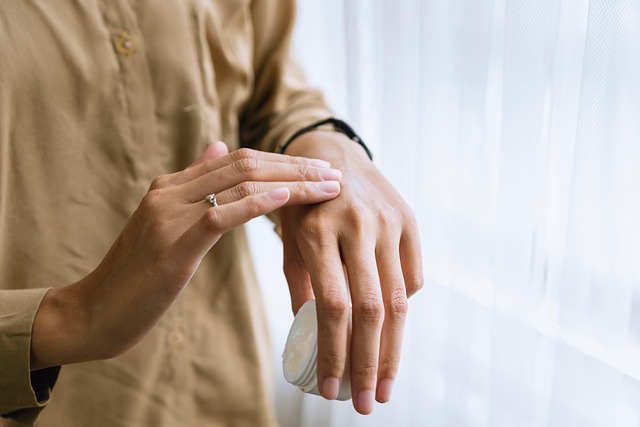Skin tags, medically known as acrochordons, are soft growths commonly found on the neck, armpits, and groin. In Liverpool, non-invasive treatments like cryotherapy, laser, excision, and cryosurgery offer effective Liverpool Skin Tag Removal options with high success rates. At-home remedies can be a gentle first step, but professional services are recommended for stubborn cases. Choosing a qualified specialist with dermatological experience ensures safe and effective results, along with education on causes, prevention, and post-removal care.
Looking for effective skin tag removal in Liverpool? This comprehensive guide explores various methods, from non-invasive techniques to surgical options, ensuring you make an informed decision. We delve into the causes and characteristics of these common skin growths, offering insights into at-home treatments and crucial safety precautions. Discover how to choose a specialist for safe and reliable Liverpool skin tag removal tailored to your needs.
- Understanding Skin Tags: Causes and Characteristics
- Non-Invasive Removal Methods in Liverpool
- Surgical Options for Skin Tag Elimination
- At-Home Treatments and Precautions
- Choosing the Right Specialist for Safe Removal
Understanding Skin Tags: Causes and Characteristics
Skin tags, also known as acrochordons, are small, soft skin growths that typically appear on the neck, armpits, and groin area, though they can occur anywhere on the body. They are usually harmless and often hereditary, forming due to a combination of hormonal changes and friction from clothing or other objects. In Liverpool Skin Tag Removal services have become increasingly popular as people seek to address these common yet often unsightly lesions.
Skin tags are characterized by their small size—usually less than 1 millimeter in diameter—and their soft, cobblestone-like texture. They may hang off the skin like little tags and can vary in color from skin tone to darker brown or even pink. While they are generally harmless, some individuals choose to remove them for cosmetic reasons or because they become irritated by clothing or jewelry. Understanding the causes and characteristics of skin tags is a crucial first step before considering Liverpool Skin Tag Removal treatments.
Non-Invasive Removal Methods in Liverpool
In Liverpool, there are several non-invasive methods available for skin tag removal, offering effective and relatively pain-free alternatives to traditional surgery. One popular option is cryotherapy, where a liquid nitrogen probe is used to freeze and destroy the skin tags. This procedure is usually quick, taking just a few minutes, and is suitable for most people with skin tags. It’s performed by trained dermatologists or medical professionals in specialized clinics across Liverpool.
Laser treatments are another non-invasive method gaining popularity for Liverpool skin tag removal. Using specific wavelengths of light, lasers target and destroy the skin tags, minimizing discomfort and downtime compared to surgical excision. Both methods have high success rates and can be repeated if necessary. Many clinics in Liverpool offer these services, ensuring accessibility for those seeking non-surgical solutions for their skin tags.
Surgical Options for Skin Tag Elimination
In some cases, individuals may opt for surgical procedures to remove skin tags, especially if they are causing discomfort or unsightly appearance. Surgical options for Liverpool Skin Tag Removal include excision and cryosurgery. Excision involves a quick cut with a scalpel or laser to slice off the tag, often performed under local anaesthesia. This method is effective but may leave a small scar. Cryosurgery, on the other hand, uses liquid nitrogen to freeze and destroy the skin tag. It’s a less invasive procedure but might require multiple treatments for complete removal. Both methods are usually quick, in-office procedures carried out by dermatologists or qualified medical professionals.
At-Home Treatments and Precautions
When considering Liverpool Skin Tag Removal, it’s important to explore at-home treatments as a potential first step. Some common methods include using over-the-counter skin tag removal products containing salicylic acid or iodine, which can help shed the tags gently. Alternatively, applying duct tape for several days has shown promising results. However, these precautions must be taken with care: always follow product instructions precisely and consult a dermatologist if tags persist or display signs of irritation.
Remember that, while at-home treatments offer convenience, they might not suit everyone’s needs. Skin tags can be stubborn, especially on certain areas of the body. If your tags are large, numerous, or causing discomfort, seeking professional Liverpool Skin Tag Removal services may be more effective and safer in the long run.
Choosing the Right Specialist for Safe Removal
When considering skin tag removal in Liverpool, it’s paramount to choose a qualified specialist to ensure safety and efficacy. Look for professionals with extensive experience in dermatological procedures who employ modern techniques and equipment. Reputable clinics offering Liverpool Skin Tag Removal services should adhere to strict hygiene standards and provide detailed consultations prior to any procedure.
Verifying credentials and reading reviews from previous clients can help you make an informed decision. A good specialist will not only remove skin tags effectively but also educate you on potential causes, prevention strategies, and post-removal care, ensuring a holistic approach to addressing this common skin concern.
Removing skin tags in Liverpool is now more accessible than ever with various safe and effective methods available. Whether you opt for non-invasive procedures, surgical removal, or at-home treatments, choosing the right approach depends on your comfort level and specific needs. Remember to consult a specialist who can provide expert advice and ensure a successful procedure. With proper care and professional guidance, you can bid farewell to those pesky skin tags and enjoy smooth, tag-free skin.
